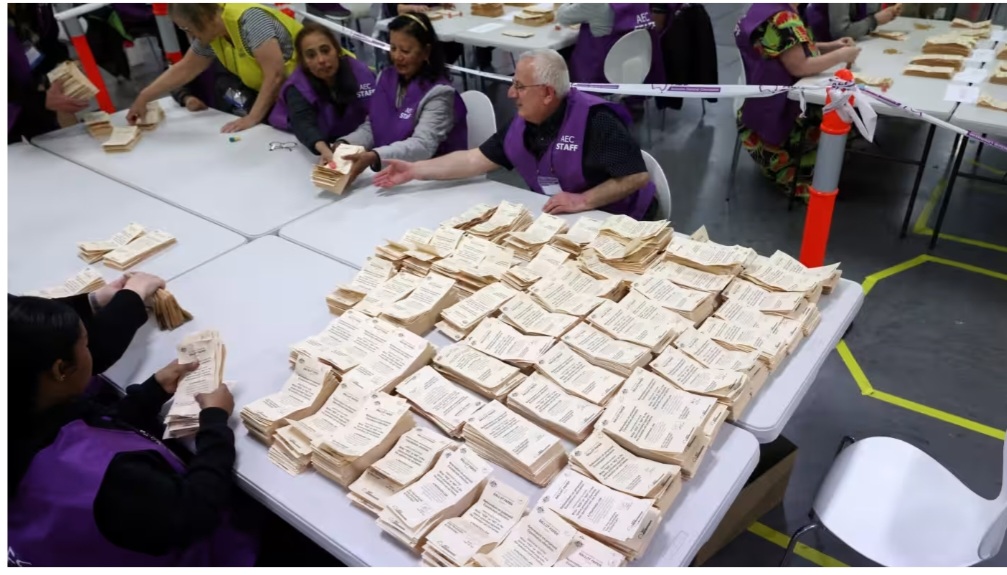Australia on Saturday decisively rejected a proposal to recognise Indigenous people in the constitution, in a major setback to the country’s efforts for reconciliation with its First Peoples.
Nationwide, with 45% of the vote counted, the “no” vote led “yes” by 57.35% to 42.65%. Australian broadcaster ABC and other TV networks have projected that at least four states—New South Wales, Tasmania, Queensland, and South Australia—would vote against altering the 122-year-old constitution.
A successful referendum requires at least four of the six states to vote in favour, along with a national majority. Because of Australia’s time zones, voting in Western Australia was still underway as it became clear the referendum was lost.
Australians had to write “yes” or “no” on a ballot paper that asked whether they agreed to the proposal, which would recognise Aboriginal and Torres Strait Island people through the creation of an Indigenous advisory body, the ‘Voice to Parliament’.
“I’m devastated,” Indigenous leader and prominent “Yes” campaigner Thomas Mayo said on ABC News.
“We need a voice. We need that structural change.”
Australia’s Indigenous citizens, who make up 3.8% of the country’s 26 million population, have inhabited the land for about 60,000 years but are not mentioned in the constitution and are, by most socio-economic measures, the most disadvantaged people in the country.
Academics and human rights advocates fear a win for the “no” camp could set back reconciliation efforts by years. Foreign Media





